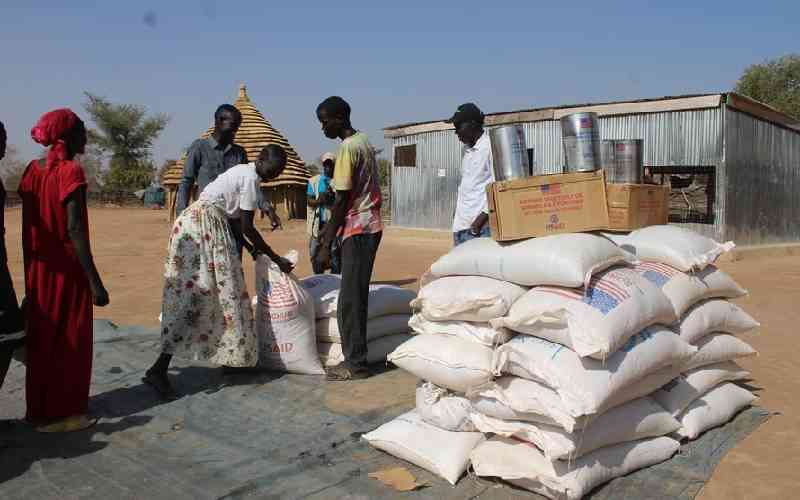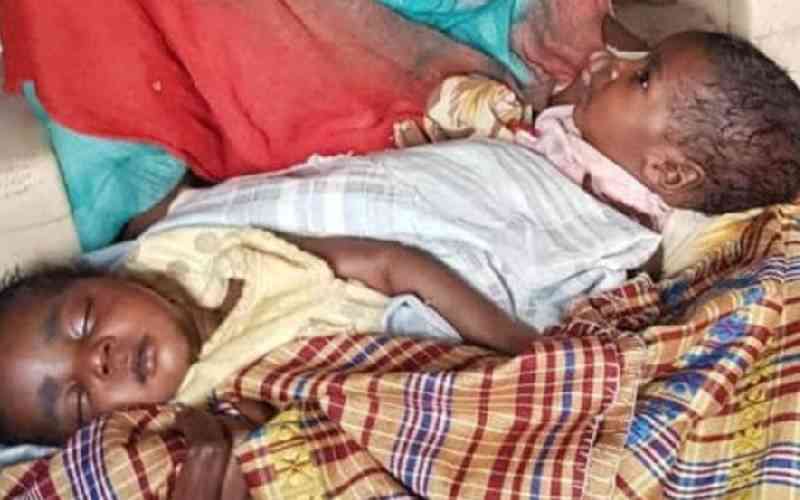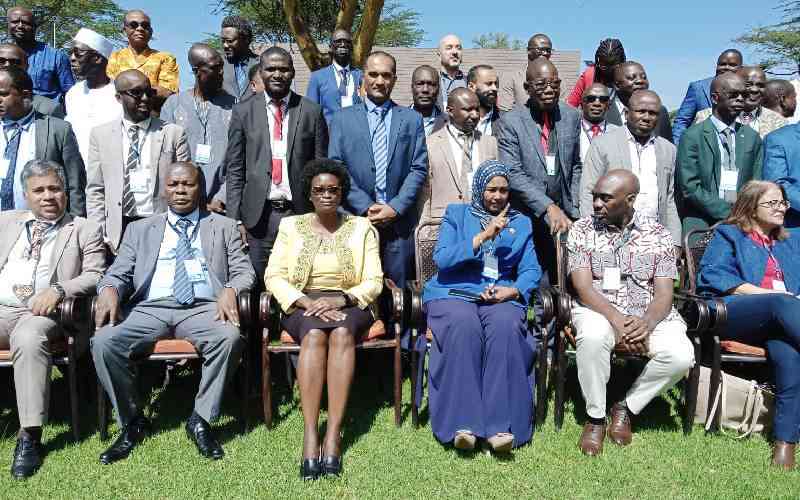An estimated 1.5 million people in the country are now acutely food insecure and will require immediate assistance through February, the United Nations World Food Programme (WFP) has said.
This is almost double the 850,000 that were in need during the same period last year, WFP added in a statement to coincide with the release of 'The State of Food Insecurity in the World 2014 report' yesterday to mark World Food Day.
"WFP programmes are currently reaching 1.2 million people in Kenya through nutrition support, general food distributions and food assistance for assets through food and cash transfers. We have intensified our resilience-building activities to give vulnerable communities the ability to cope with climatic shocks, in support of the Government of Kenya's plan to end drought emergencies," said WFP Country Representative Ron Sibanda.
Ebola crisis
He added that the organisation is working with the Government to respond to the findings of the long rains assessment.
"Every year, we witness hunger's devastating effect on families, communities and whole economies," said WFP Executive Director Ertharin Cousin, as the organisation highlighted both the challenges around the world and the real progress being made toward "zero hunger".
According to the report, the total number of people facing hunger in the world is down by 37 million, to 805 million, and 63 countries have reached international hunger-reduction targets before 2015. The report said this was proof of the progress possible when governments, humanitarian organisations and the private sector come together to make lasting change.
Although WFP did not mention the specific areas of the country in which it is already working with the Government, it is clear that the Northern parts could be the most affected.
A situational report by WFP released in April indicated that the organisation required US$90 million (Sh8 billion) to meet the needs for all its programmes in the country based on the current needs.
It cited threatening conditions in Baringo, Mandera, Marsabit, Samburu, Turkana and Wajir.
Additional nutrition surveys recently conducted by the Health ministry, Unicef and NGOs in Baringo, Mandera, Samburu, Turkana and Wajir counties, reported a significant deterioration in nutrition compared to the same time last year. The only exceptions were Garissa, which remained stable, and Tana River, where it improved.
The general hunger situation in the country continues to get worse despite statistics indicating the rate in the world continues to improve.
Pastoralist communities have traditionally been the most affected.
Corporates have also been sucked into the emergency as part of their social responsibility initiatives.
Perhaps concerned by the non-sustainability of food handouts that have now become the norm, the WFP said it is already seeking to change its initiatives from the traditional food-in-kind to strategies that would empower communities to support themselves.
Stay informed. Subscribe to our newsletter
"In the semi-arid areas, WFP has already phased out relief support and transitioned beneficiaries to cash for assets. In the arid areas, WFP has been shifting it programming towards resilience building," said the organisation.
The hunger situation in the world has been exacerbated by conflicts in places such as Iraq, Syria, South Sudan and the Central African Republic.
The current Ebola crisis in some West African countries also raises the risk that communities affected by the virus require emergency food aid, the WFP said.
Besides WFP, other organisations that marked the World Food Day were Food and Agriculture Organisation of the UN, and the International Fund for Agricultural Development.
 The Standard Group Plc is a
multi-media organization with investments in media platforms spanning newspaper
print operations, television, radio broadcasting, digital and online services. The
Standard Group is recognized as a leading multi-media house in Kenya with a key
influence in matters of national and international interest.
The Standard Group Plc is a
multi-media organization with investments in media platforms spanning newspaper
print operations, television, radio broadcasting, digital and online services. The
Standard Group is recognized as a leading multi-media house in Kenya with a key
influence in matters of national and international interest.
 The Standard Group Plc is a
multi-media organization with investments in media platforms spanning newspaper
print operations, television, radio broadcasting, digital and online services. The
Standard Group is recognized as a leading multi-media house in Kenya with a key
influence in matters of national and international interest.
The Standard Group Plc is a
multi-media organization with investments in media platforms spanning newspaper
print operations, television, radio broadcasting, digital and online services. The
Standard Group is recognized as a leading multi-media house in Kenya with a key
influence in matters of national and international interest.









